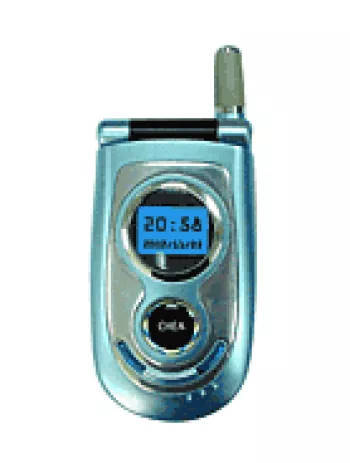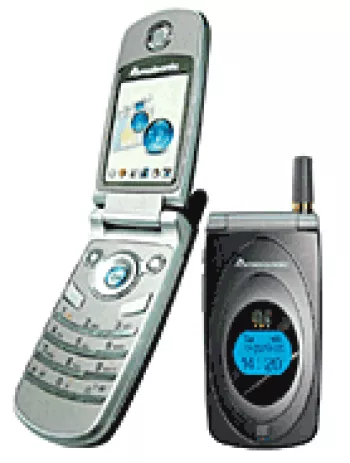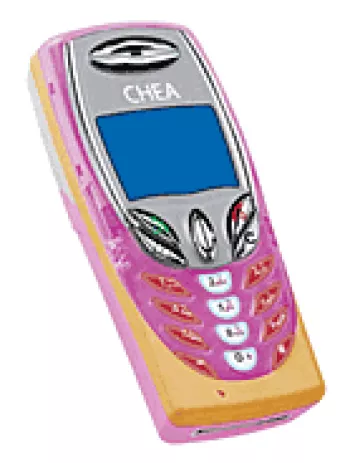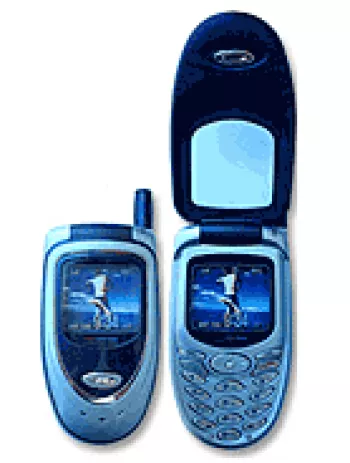
Overview of Chea 318
The Chea 318, a feature phone that was announced in the third quarter of 2003, was ultimately cancelled before reaching the consumer market. Despite its cancellation, the Chea 318 offers an interesting look at mobile technology during its era. It was designed as a basic GSM phone with essential functions suitable for communication needs at the time.
Network Capabilities
The device was intended to operate over GSM networks with support for bands GSM 900 and GSM 1800. Although it lacked EDGE capabilities, it did offer GPRS for data transfer, which allowed for basic internet and multimedia messaging services at the time.
Design and Body
The Chea 318 was designed with dimensions of 109 x 45 x 18 mm, making it portable and relatively easy to handle. Weighing in at 77 grams, it was lightweight, especially compared to some of the bulkier feature phones of that period. It utilized a Mini-SIM standard, which was the common choice before the advent of micro and nano SIMs.
Display
Featuring an STN screen capable of displaying 4096 colors, the Chea 318's display could be considered basic by today’s standards, but was typical for feature phones during its time. It supported a resolution of 128 x 128 pixels, focusing on delivering essential visuals without the high power consumption associated with more advanced displays.
Memory and Storage
The Chea 318 did not offer a card slot, indicating limited expandability concerning storage. Its internal memory would have been enough to store essential contact information, with a phonebook capacity capable of holding up to 150 contacts. It lacked advanced call record features, focusing instead on straightforward contact management.
Camera
The Chea 318 did not include a camera, consistent with many feature phones of its time. This absence reaffirmed the device's focus on basic communication rather than multimedia features.
Sound and Ringtones
Without a loudspeaker, the device nevertheless offered polyphonic ringtones and a composer for personalized tones. It highlighted vibration alert features for calls and messages while excluding a 3.5mm jack, focusing primarily on telephony.
Communication Features
While lacking modern amenities such as WLAN and Bluetooth, the Chea 318 incorporated foundational communication technology. It supported WAP 1.2 for basic internet browsing and offered SMS and MMS capabilities for messaging. Additionally, the device incorporated Java support, which allowed users access to some apps and games.
Battery Performance
Equipped with a removable Li-Ion battery, this feature phone offered standby times of up to 150 hours and talk time extending up to 5 hours. Such battery longevity would have suited the need for less frequent charges, enhancing its portability for those who required constant communication without relying on regular charging outlets.
User Interface and Operating System
Like many devices of its era, the Chea 318 operated as a feature phone—an era prior to smartphones—optimized for clear delivery of essential functionalities like voice calls and messaging. The inclusion of limited games and basic Java-enabled applications offered modest entertainment and functional options.
Miscellaneous Features
The phone offered alerts and notifications predominantly through polyphonic tones and vibrations. Though details on specific color options were not indicated, it likely followed the trend of offering a minimal color palette for consumers. The phone supported English as its interface language which aligned with a more global market distribution plan had the phone been launched.
Conclusion
The Chea 318 presents a snapshot of early 2000s mobile technology. Its focus on essential communication functions provided a straightforward solution for consumers, without the complexities and distractions of modern smartphones. Though it never made it to market, and its specific market reception remains unknown, the Chea 318’s specifications reflect a time of simpler telephony that eventually led to the rich feature sets found in contemporary devices.
Key Features of Chea 318
- Lightweight design at 77 g (2.72 oz).
- Compact dimensions: 109 x 45 x 18 mm.
- GSM technology support.
- Supports GPRS connectivity.
- Colorful STN display with 4096 colors.
- Phonebook storage for up to 150 contacts.
- Messaging support for SMS and MMS.
- WAP 1.2 browser for basic internet access.
- Includes 3 pre-installed games.
- Java support for additional applications.
- Removable Li-Ion battery offering up to 150 hours standby time.
- Provides up to 5 hours of talk time.
Disadvantages of Chea 318
- Only supports GSM technology; no 3G or 4G network support.
- Lacks EDGE for faster data connectivity.
- The device release was cancelled, hence it's not available in the market.
- Display type is outdated (STN) with only 4096 colors and low resolution (128 x 128 pixels).
- No expandable memory card slot is available.
- No camera is present on the device.
- No loudspeaker and 3.5mm headphone jack.
- Does not support modern communication standards like WLAN, Bluetooth, or even basic positioning (GPS).
- No FM radio capability.
- Limited to basic messaging capabilities (SMS, MMS) with outdated WAP 1.2 browser.
- Phonebook capacity is relatively small, supporting only up to 150 contacts.
- Offers very few games (only 3) and lacks app expandability (limited Java support).
View Also
More Phones
All Rights Reserved +13675 Phones © Mobilawy 2025
























